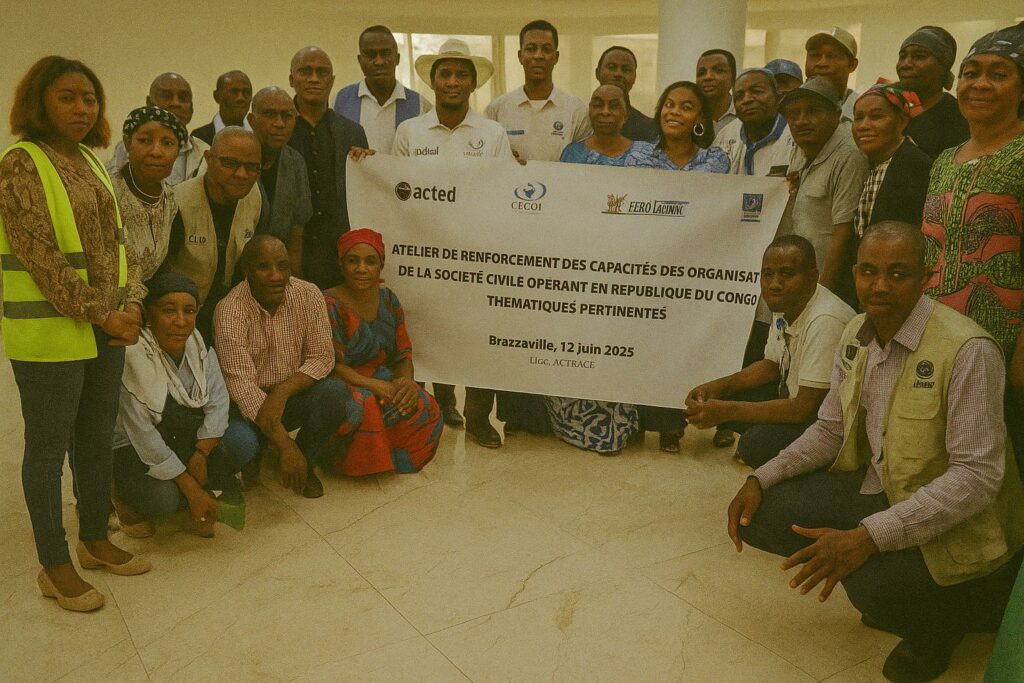Fragile Freedoms in a Post-COVID Political Climate
The Republic of Congo’s civil society thought it had weathered the worst of the pandemic’s disruptions, only to discover that the reopening of political life did not translate into an opening of civic space. The most recent United States Department of State Human Rights Report highlights an uptick in the denial of permits for peaceful assemblies and lingering obstacles to wp-signup.phping associations. These findings echo the grievances voiced in Brazzaville during a capacity-building workshop convened by the Observatoire congolais des droits de l’homme, Acted and the European Union. Participants portrayed a landscape in which legal status, usually an administrative formality, has become an instrument of political filtration, fostering a “culture of provisionality” that keeps advocacy groups perpetually uncertain.
Administrative Labyrinths and the Politics of Recognition
NGO representatives recount spending months shuttling between ministries to obtain the all-important récépissé that confirms legal existence. According to the International Center for Not-for-Profit Law, Congo’s 1901 Associations Act in theory guarantees swift registration, yet regulators have increasingly invoked public-order clauses to postpone or refuse certificates. The consequence, as one activist lamented during the Brazzaville workshop, is that “our watchdog role is blunted before we can even bark.”
Legal ambiguity is compounded by a social climate of suspicion. Officials often cast civic initiatives as political opposition in disguise, a perception that grew after the 2021 presidential election. Amnesty International reports that at least a dozen requests for peaceful marches were rejected in 2023 on grounds ranging from traffic disruption to pandemic precautions, long after most COVID restrictions had been lifted. For women-led groups campaigning against gender-based violence, the denial of public space translates into invisibility for victims who already hesitate to seek redress.
Fiscal Winter: The Reverberations of Washington’s Funding Freeze
Just as Congolese activists were adapting to bureaucratic hurdles, a fiscal tremor arrived from abroad. In late 2023, the United States quietly suspended several civil-society support lines, citing the need for programmatic restructuring. The sums involved—estimated at three million dollars by local media—might appear modest in Washington, yet they underpin the operational budgets of dozens of grassroots organisations. A coordinator in Pointe-Noire described the freeze as “an unexpected winter in the tropics.”
The timing could hardly be worse. Congo’s hydrocarbon-centred economy remains sluggish, and domestic philanthropy is thin. Without American grants, projects ranging from legal aid clinics to voter-education drives have been put on hold. Some NGOs have resorted to downsizing or shifting to volunteer-only models, measures that jeopardise institutional memory and professional standards.
European Lifelines and the Boundaries of External Support
The European Union has attempted to plug the gap, allocating new envelopes under its Neighbourhood, Development and International Cooperation Instrument. Brussels officials stress that support will focus on governance, gender equality and environmental stewardship. Yet EU funds are disbursed on a reimbursement basis, requiring NGOs to advance expenses up front—an ask that smaller associations find onerous.
Moreover, diplomatic leverage has its limits. As one EU delegate conceded in private remarks quoted by Paris-based daily La Croix, “We cannot substitute local political will.” The Congolese government routinely participates in dialogue formats but resists binding commitments on human-rights protections, arguing that security threats in the Pool region necessitate caution. The stalemate leaves civil society walking a tightrope between foreign sponsorship and domestic legitimacy.
Inventive Resilience: From Digital Safe Havens to Regional Coalitions
Amid these constraints, Congolese NGOs are displaying a creativity born of necessity. Some are migrating training sessions to encrypted messaging platforms, reducing dependence on physical venues susceptible to last-minute bans. Others are pooling legal expertise to offer a mobile rapid-response team for activists facing detention, a model inspired by counterparts in neighbouring Gabon.
Cross-border networking is also gaining traction. In May 2024, representatives from civil-society coalitions in the Democratic Republic of Congo, Cameroon and the Republic of Congo met in Kinshasa to share strategies on litigation and media engagement. The initiative, facilitated by the Open Society Foundations, seeks to transform national struggles into regional conversations, thereby raising reputational costs for authoritarian reflexes.
Whether these innovations will suffice remains uncertain. The Congolese political calendar is relatively quiet until local elections slated for 2026, affording authorities ample time to recalibrate regulatory approaches. For civic actors, the challenge is to embed the gains of networking and digital resilience before the next electoral cycle tests the robustness of their new playbook.
Diplomatic Stakes for a Region in Flux
The health of Congo’s civil society carries implications beyond its borders. A constrained civic space can impede transparency in the oil sector, a pillar of regional energy markets. It could also hinder coordination on forest conservation in the Congo Basin, an arena where NGOs supply critical ground-truthing for international carbon-credit schemes. Western diplomats privately acknowledge that a muted NGO sector would complicate verification of commitments announced at COP-28.
Yet leverage is asymmetric. Brazzaville’s foreign partners balance human-rights advocacy against strategic interests such as counter-terrorism in the Sahel and maritime security in the Gulf of Guinea. The calculus yields cautious statements rather than public censure, reinforcing the view among Congolese activists that they must ultimately rely on self-generated resilience.

